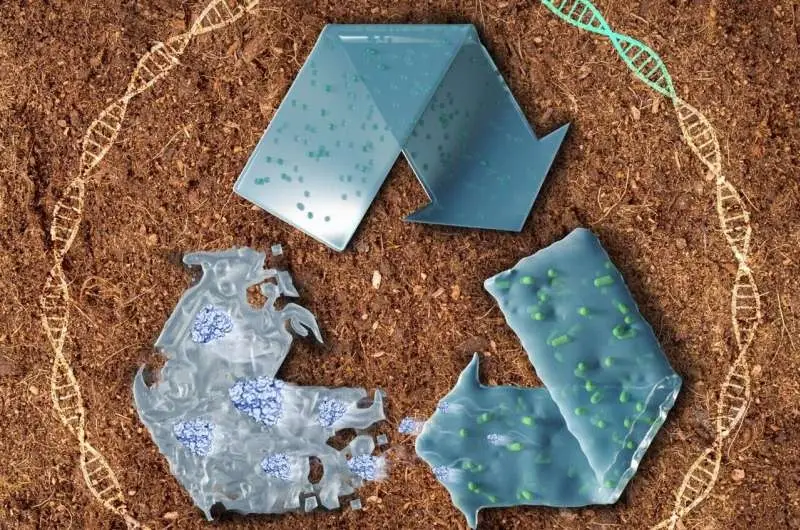Learn how researchers use spores in a different way to create a new, and more importantly, safe alternative to plastics that are changing the world with sustainable materials.

Resilient Spores, Powerful Solutions
Concerns about pollution, especially plastic waste, are common nowadays and research from the Shenzhen Institute of Advanced Technology (SIAT), and the Chinese Academy of Sciences (CAS) may have just found an ultimate solution.
The team has fabricated Bacillus subtilis bacteria with the potential of secreting plastic degrading enzymes Harnessing the innate resilience of spores, which can survive extreme conditions. The microbes are then merged with plastic granules to form “living plastics” that disassemble rapidly upon encountering certain circumstances.
The spores are dormant during normal use, meaning that the plastic maintains constant service. But when soils or compost trigger spores of these fungi, they switch on and start to break down the plastic completely. Such innovation creates the possibility of manufacturing fully biodegradable, environmentally friendly materials that can successfully substitute traditional plastics.
Unlocking the Power of Synthetic Biology
Synthetic biology, a field that has seen rapid progress in recent years, is to thank for the research team’s breakthrough. By recognizing the systems and devices that microorganisms have normally evolved to survive when oceans are polluted, researchers contain reprogramed bacteria that develop the enzymes necessary for biodegrading plastics.
PETase and MHETase, are two key enzymes described in this study and present in the bacterium Ideonella sakaiensis isolated from PET-contaminated soil. These enzymes have been integrated into their engineered Bacillus subtilis spores, which make for a general system that works on various plastic materials like PCL, PBS, PBAT, PLA PHA and even PET.
That we can program these spores to degrade plastics under certain conditions stands as a testament to the capabilities of synthetic biology and its capacity to influence urgent environmental affairs.
Conclusion
Engineered spores could provide a solution to worldwide plastic pollution, through the emergence of ‘living plastics’. Capitalizing on these incredible survival instincts of microorganisms and the accuracy of synthetic biology has allowed us, for the first time, to produce sustainable alternatives that match or even surpass the performance of traditional plastics using a new process. With further development, this technology may revolutionize plastic manufacturing and recycling now, heralding a future sustainability-oriented aspiration
